As part of the initiative to electrify its motorcycle and automobile products toward the realization of a carbon-neutral society, on August 24, 2023, Honda will begin sales of the EM1 e: – Honda’s first personal-use electric motorcycle model in Japan. Developed with the concept of an “electric scooter ‘just right’ for people,” the EM1 e: is filled with technologies and features which make it fit well with people’s daily lives. The key members of the development team share their stories about the passion they put into EM1 e: and their journey leading up to its market launch.

Assistant Chief Engineer, Motorcycle Product Development Department
Electrification Development Division,
Motorcycle and Power Products Electrification Business Development Unit
Electrification Business Development Operations
Honda Motor Co., Ltd.
View More
Close
Kaori Goto
Read More
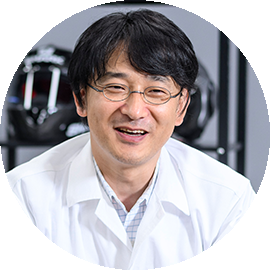
Chief Engineer, System Innovation Department
System Development Division, Development and Production Unit
Motorcycle and Power Products Operations
Honda Motor Co, Ltd.
View More
Close
Hajime Uchiyama
Read More
Preferring Tougher Challenges
How did Honda create an electric scooter “just right” for people’s daily lives?
The EM1 e: – Honda’s first personal-use electric scooter – will go on sale on August 24, 2023. How did the development of this model start?

I am sure that many people have seen the BENLY e: which we unveiled in 2019 on city streets because the Japan Post has been using it for its mail delivery and pickup services.

All electric bikes we have launched since 2018 have one thing in common. They are powered by the Honda Mobile Power Pack (MPP) swappable battery and have been very well received in the market because, by having the second battery charged in advance, customers can keep using the bike without waiting around while their battery is charged.

We want to make this technology more easily accessible to more customers, which also will contribute to the reduction of the environmental footprint of our motorcycle products. With such a future vision, we decided to work on the development of electric scooters designed for personal use.
 “With no compromise of Honda quality standards, we will develop electric bikes which customers can enjoy for a long time with complete peace of mind. That it the value proposition of Honda,” said Uchiyama.
“With no compromise of Honda quality standards, we will develop electric bikes which customers can enjoy for a long time with complete peace of mind. That it the value proposition of Honda,” said Uchiyama.
How did the concept come about for the “scooter ‘just right’ for people’s daily lives”?

Electric motorcycles are quiet and very comfortable to ride. I felt that this kind of mobility product fits well with our daily lives and is “just right” as a convenient means of transportation. This is how we came up with the EM1 e: concept.

Many of us on the development team are regular users of motorcycles and scooters, so by incorporating some of our personal input, we identified the specifications such as range, riding performance and output balance, which will make this model “just right” for people’s daily use.

Usage-wise, we envisioned people using it for short distance rides such as commuting to school, to a part-time job, or to the nearest train station.
 A swappable battery fits right in the space underneath the seat. “The Honda Mobile Power Pack e: weighs about 10 kg, and the T-shaped handle makes it easy to carry,” explained Goto.
A swappable battery fits right in the space underneath the seat. “The Honda Mobile Power Pack e: weighs about 10 kg, and the T-shaped handle makes it easy to carry,” explained Goto.
 A Honda Mobile Power Pack e: charging up while being placed on and connected to the Honda Power Pack Charger e:. “We are assuming that users will take out the Mobile Power Pack e: from their scooter when they return home and charge it indoors,” said Uchiyama.
A Honda Mobile Power Pack e: charging up while being placed on and connected to the Honda Power Pack Charger e:. “We are assuming that users will take out the Mobile Power Pack e: from their scooter when they return home and charge it indoors,” said Uchiyama.

The riding distance we had in mind was 10 to 15 km (approx. 6-9 miles) one way. When fully charged, the EM1 e: has range of about 40 km (approx. 25 miles) on city streets, so it should give enough range for the user to get home, even if they decide to make an extra stop or two.

We achieved the usability “just right” for most people’s daily transportation needs, which makes me want this bike personally.
 “Once EM1 e: goes on sale, I am planning to buy one for myself and ride it daily, so I already got a new helmet,” said Goto with a smile on her face.
“Once EM1 e: goes on sale, I am planning to buy one for myself and ride it daily, so I already got a new helmet,” said Goto with a smile on her face.
Quiet and easy to ride – How was the riding experience unique only to EM1 e: realized?
What are the unique features of the EM1 e:?

Of course, the big difference is that this model is electric, so it does not emit any exhaust gases. Also, having less vibration makes it easier to ride and less tiring for the user, even during a longer ride. Another unique feature is its quietness.

Even when the user needs to leave home early in the morning or come home late at night, they can ride and park the EM1 e: quietly in a residential area, making it a friendly vehicle for our customers and people around them.
What did you do differently in terms of engineering and styling design to make this model achieve the usability “just right” for people?

If you look at the foot area on the floor, you can see there is quite a bit of space. We developed packaging which enables anyone to be able to enjoy riding this scooter comfortably regardless of their body type and/or type of clothing they prefer.
 “The flat seat provides a high degree of freedom in the riding position,” said Goto.
“The flat seat provides a high degree of freedom in the riding position,” said Goto.

The body of the EM1 e: was designed based on the U-GO released in China in 2021, but the position of the battery slot is different. For the U-GO, the battery was installed underneath the floor, but for the EM1 e: the battery goes underneath the seat, which enabled us to lower the floor.

Also, we were able to reduce the cost by commonizing some body parts. Based on our calculation, when it is used for more than four years the running cost of the EM1 e: will be lower than that of a scooter equipped with an internal combustion engine (ICE).
 The fully-digitalized meter that simply displays various information such as the speedometer, clock, and battery level display is also a unique feature of the EM1 e:.
The fully-digitalized meter that simply displays various information such as the speedometer, clock, and battery level display is also a unique feature of the EM1 e:.
What were the difficulties the team faced during the development phase?

An electric scooter is so quiet that some noise, which would not bother us with an ICE scooter, bothered us.

With an early prototype, some of the exterior parts were vibrating due to the driving force of the motor and an uneven road surface during the use, and that vibration noise bothered us.

So, we devised better mounting methods for some exterior and other parts and reinforced the backside of such parts to increase rigidity to ensure quietness. It took steady work and patience to identify the source of every single noise we wanted to address, but we did it until we obtained satisfactory results.

I hope our customers will enjoy such fine tuning and the quiet and comfortable ride the EM1 e: offers, which represents the team's commitment to the pursuit of perfection.

As the assistant development leader, I coordinated the conducting of various tests. Naturally, there were times when opinions were divided among the team members. Every time that happened, we brought the scooter we were working on at that time to our company test course and took a ride, then we followed all of the necessary steps to reconcile difference of opinions. This was our way of practicing what we call the “Three Realities Principle*” at Honda.

Yes. For example, there were different opinions about what the upper speed limit should be for the “ECON mode,” a riding mode which features mild power output characteristics, that the rider can select with a simple switch operation to reduce battery consumption.

We had a lot of discussions to identify what speed would be “just right.” Some said 15 km/h or 20 km/h (9.3 or 12.4 miles/h), so the team members took the actual bike to the course and took a ride at those speeds. As a result, the upper speed limit for the ECON mode was determined to be 30 km/h (18.6 miles/h).
*Honda’s approach to place importance on going to the real spot, understanding the real situation, as the basis for making realistic decisions.
Entry model for new riders – Continuous pursuit of joy for people by offering a fun and unrestricted mobility experience
Motorcycle products will be increasingly electrified in the future. From an engineer’s perspective, how do you feel about this trend?

Throughout my career at Honda I have been working mainly in the areas of motorcycle body design. So, regardless of the power source – engine or motor – I believe that the “value of mobility” will remain the same in the future. We can apply technologies we have amassed through the development of ICE models on electric bikes. My goal is to continue developing new mobility products so that we can continue offering the value of mobility.

The essential difference from ICE models is that electric motorcycles require a balance between power output and range. When we increase the power, the bike can travel faster, thus we express the “fun” of motorcycle riding. But such high-power bikes use up more electric power, so the range will be shorter, thus “convenience” will decline.

Yes. Finding that balance may be a difficulty unique to the development of electric motorcycles.
 Even if the power source of motorcycles shifts with the times, the passion and strong commitment of motorcycle development engineers remain the same.
Even if the power source of motorcycles shifts with the times, the passion and strong commitment of motorcycle development engineers remain the same.

In terms of the “fun” of motorcycles, I have a feeling that the quietness of electric models will create a new “fun” that ICE couldn’t have. For example, when two motorcycle riders are standing next to each other waiting for a traffic light to change, if they are on electric motorcycles, they can enjoy conversation without being disturbed by the engine sound.

In the future, riders might be able to communicate with each other without using an intercom while riding in tandem or as a touring group.
How would you like to see the EM1 e: getting used by our customers in the future?

We developed this electric scooter model with a wide range of use in mind, so we would be happy if this model will be enjoyed by riders who are switching from their current bikes to this one, as well as new riders who were not so interested in motorcycles before, but who will try EM1 e: as their entry model.

Unlike ICE models, electric bikes do not require a stop at a gas station. The EM1 e: doesn’t need an oil change. So, we are hoping that people who were avoiding motorcycles because of the hassle of such maintenance tasks will readily enjoy EM1 e:.

The EM1 e: was on display at the JAMA booth in the exhibition held in conjunction with the G7 Hiroshima Summit, introduced as one example of electrification initiatives in Japan. We hope that the EM1 e: will be a model that creates an opportunity for more people to experience the joy of mobility using an environmentally-responsible product.
 The EM1 e: (left) was included in the exhibit at the Japan Automobile Manufacturers Association, Inc. (JAMA) booth, showcasing various initiatives the Japanese automobile industry is taking toward the realization of carbon neutrality. The exhibition was held in connection with the G7 Hiroshima Summit 2023.
The EM1 e: (left) was included in the exhibit at the Japan Automobile Manufacturers Association, Inc. (JAMA) booth, showcasing various initiatives the Japanese automobile industry is taking toward the realization of carbon neutrality. The exhibition was held in connection with the G7 Hiroshima Summit 2023.
Honda has a brand slogan, “The Power of Dreams,” which was redefined this year with the addition of a new tagline “How we move you.” This represents Honda's belief that it is important for those of us who work at Honda to have our own dreams and convey them to our customers.
So, as we conclude this interview, could you tell us about your dreams?

I believe that personal-use mobility products feature some exciting and uplifting elements such as making our daily lives more convenient with additional “fun.” So, I want to keep developing mobility products which make people's daily lives more enjoyable. That is my dream.

“I want to make fun bikes.” That was the passion I joined Honda with. But in reality, I have been working on development while thinking, “What exactly is the ‘fun’ I wanted to create?” So, while cherishing my initial passion, I would like to offer the “pure fun” of mobility to more and more people, by finding the good balance between “convenience” and “fun” for our mobility products.
Original article issued on May 29, 2023


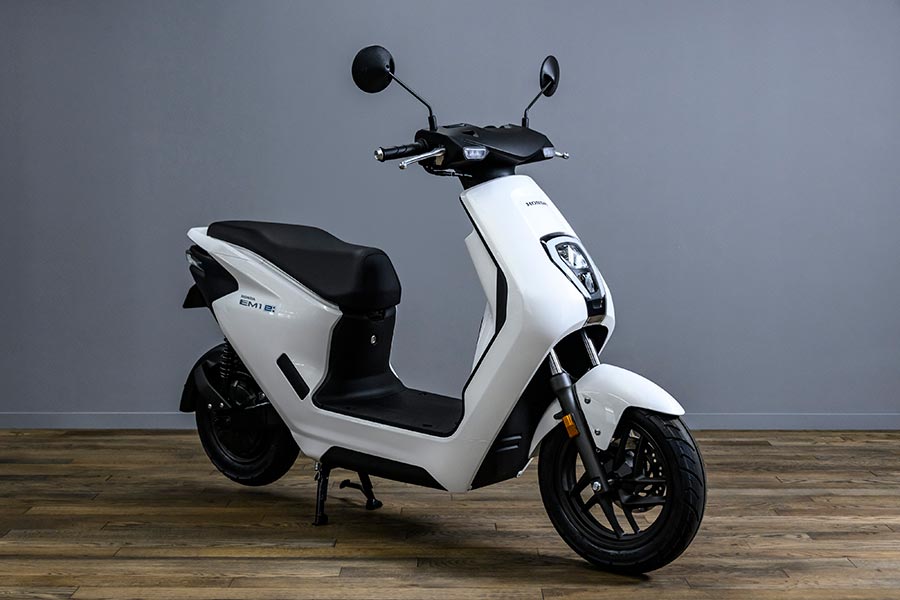
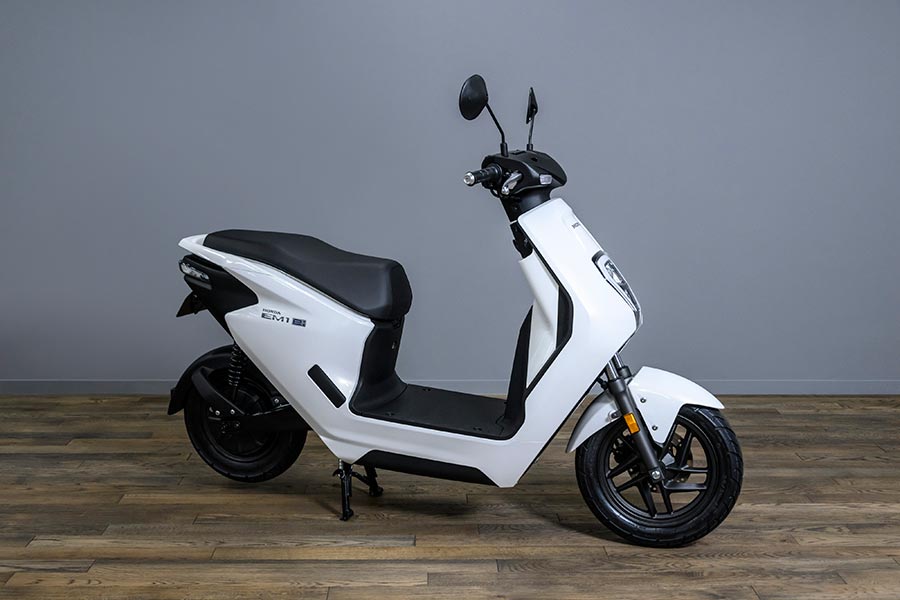
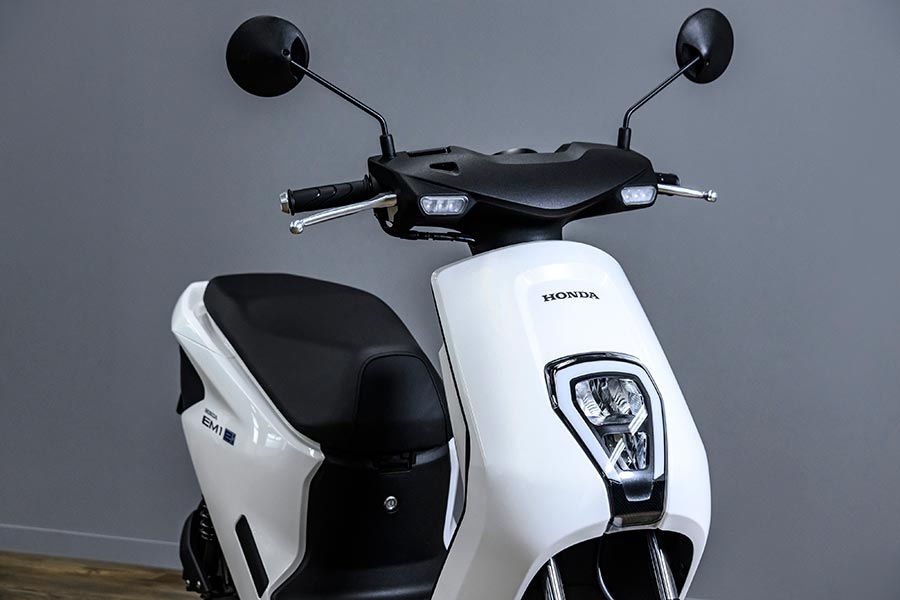
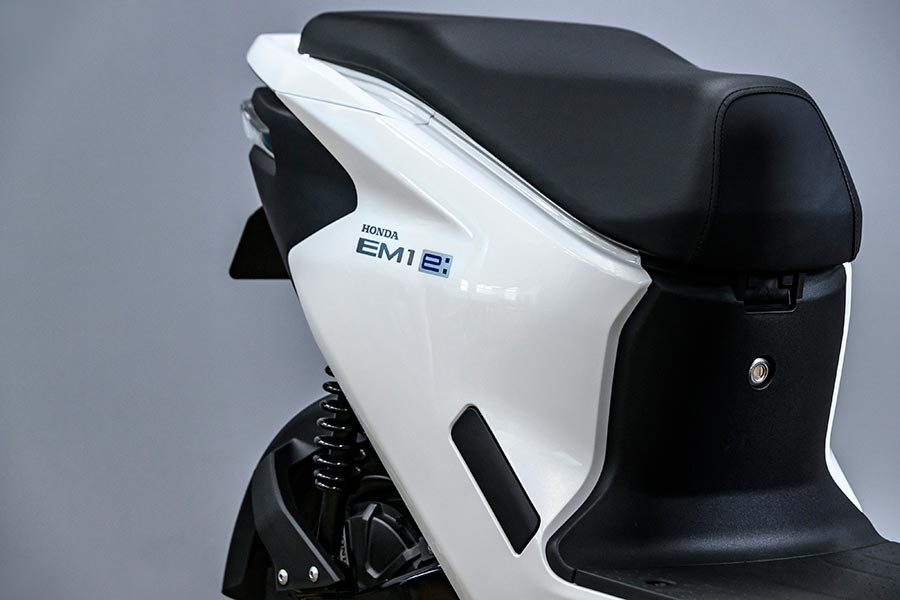
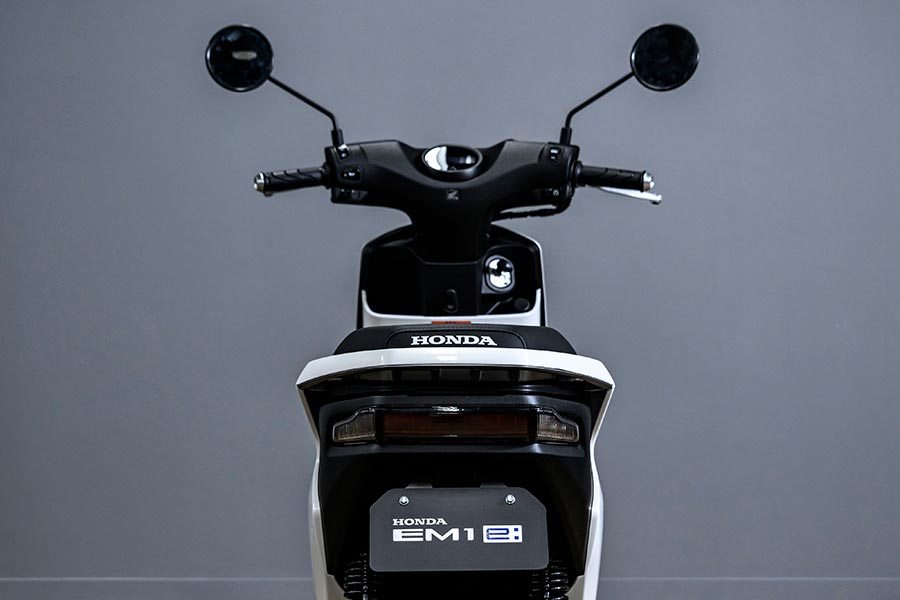
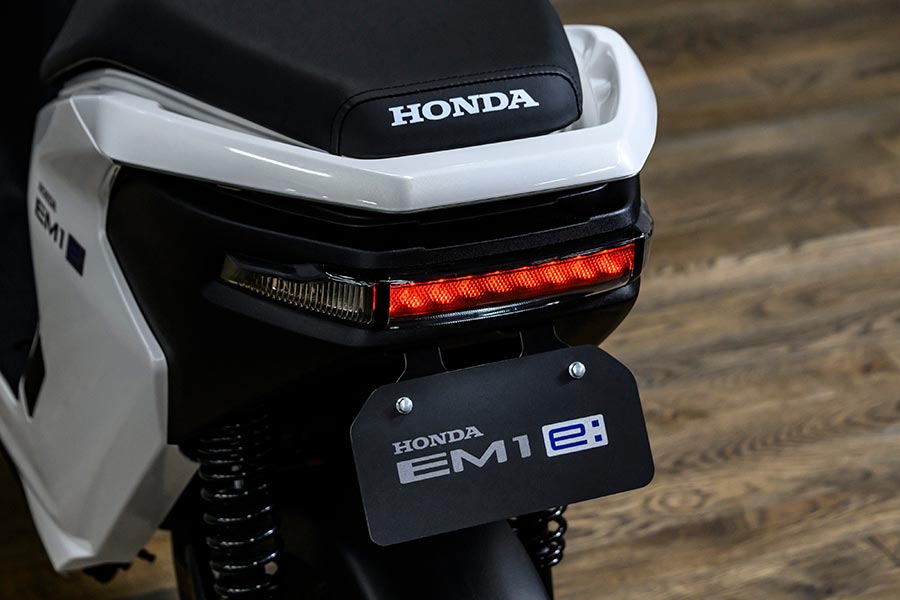
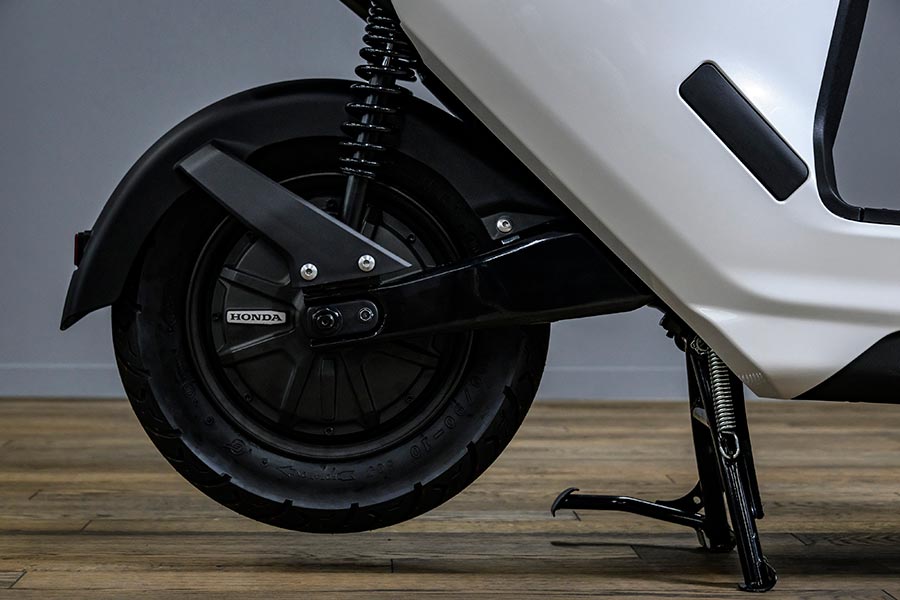
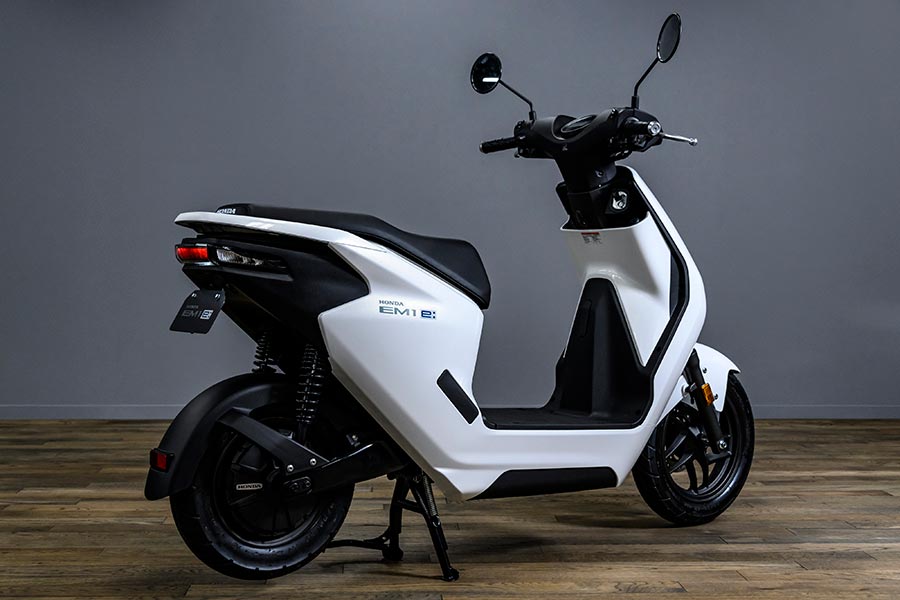
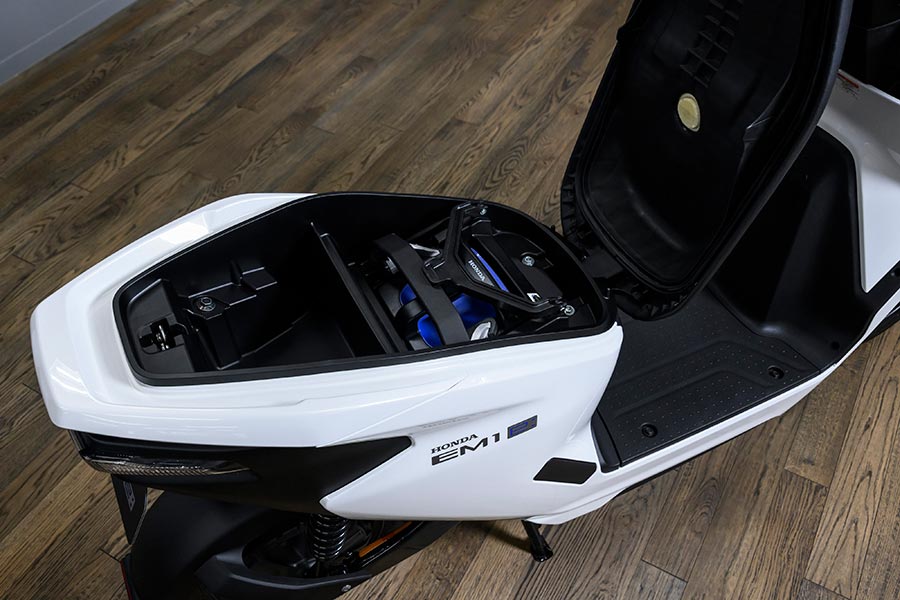


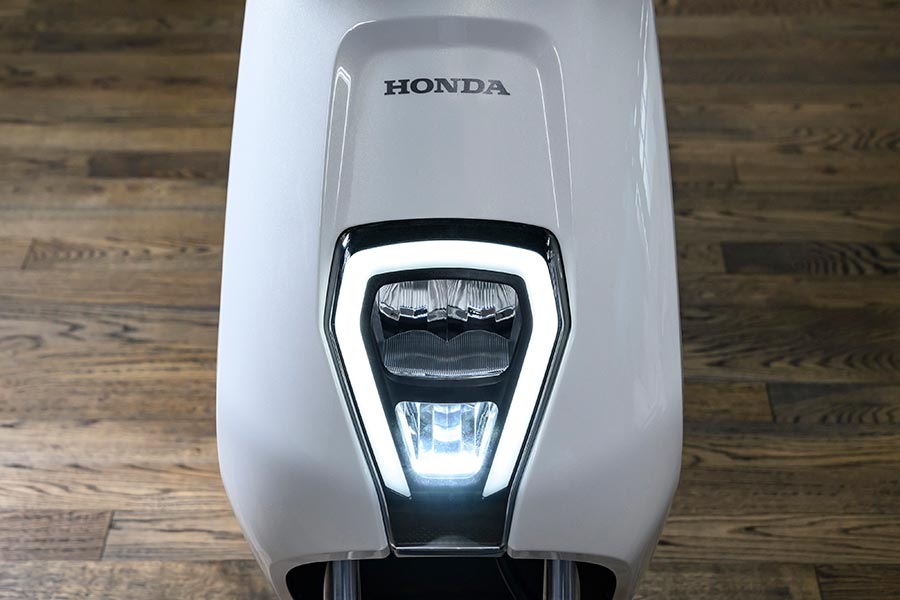




Honda has a long history of electric motorcycle development, which started with the CUV-ES scooter launched in 1994, followed by the EV-neo in 2009 and the PCX Electric in 2018.